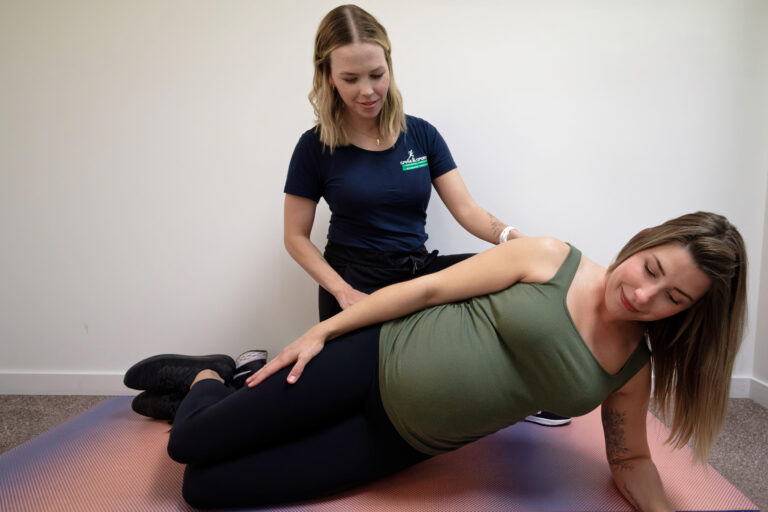Breast cancer can have a significant impact on physical health, particularly due to surgery, chemotherapy, and radiation treatments. Physiotherapy plays a vital role in the rehabilitation process for patients recovering from breast cancer, helping to address a range of physical issues such as pain, stiffness, reduced mobility, and lymphedema. Here are some key areas where physiotherapy can be beneficial:
 1. Post-surgery rehabilitation: After breast cancer surgery (such as lumpectomy or mastectomy), patients often experience pain, tightness, and reduced range of motion in the chest, shoulder, and arm. Physiotherapy helps restore shoulder mobility, improve posture, and reduce scar tissue formation.
1. Post-surgery rehabilitation: After breast cancer surgery (such as lumpectomy or mastectomy), patients often experience pain, tightness, and reduced range of motion in the chest, shoulder, and arm. Physiotherapy helps restore shoulder mobility, improve posture, and reduce scar tissue formation. 2. Lymphedema management: Removal of lymph nodes or damage to lymphatic pathways during surgery or radiation can lead to lymphedema (swelling in the arms). Physiotherapists use techniques such as manual lymphatic drainage, compression therapy, and specific exercises to manage lymphedema.
2. Lymphedema management: Removal of lymph nodes or damage to lymphatic pathways during surgery or radiation can lead to lymphedema (swelling in the arms). Physiotherapists use techniques such as manual lymphatic drainage, compression therapy, and specific exercises to manage lymphedema. 3. Improving strength and flexibility: Fatigue and muscle weakness are common after chemotherapy and radiation. Physiotherapists design personalized exercise programs to restore muscle strength, flexibility, and endurance, helping patients regain normal function and energy levels.
3. Improving strength and flexibility: Fatigue and muscle weakness are common after chemotherapy and radiation. Physiotherapists design personalized exercise programs to restore muscle strength, flexibility, and endurance, helping patients regain normal function and energy levels. 4. Pain management: Physiotherapy can address pain resulting from breast cancer treatments. Techniques such as massage, stretching, heat therapy, and joint mobilization can be used to reduce discomfort.
4. Pain management: Physiotherapy can address pain resulting from breast cancer treatments. Techniques such as massage, stretching, heat therapy, and joint mobilization can be used to reduce discomfort. 5. Posture correction: Breast cancer surgery, particularly mastectomy, can lead to poor posture, as patients may compensate for pain or changes in body shape. Physiotherapy helps to improve posture, which is essential for preventing musculoskeletal problems and improving quality of life.
5. Posture correction: Breast cancer surgery, particularly mastectomy, can lead to poor posture, as patients may compensate for pain or changes in body shape. Physiotherapy helps to improve posture, which is essential for preventing musculoskeletal problems and improving quality of life. 6. Psychological benefits: Physical activity and movement through physiotherapy can help improve mood, reduce anxiety and depression, and boost confidence.
6. Psychological benefits: Physical activity and movement through physiotherapy can help improve mood, reduce anxiety and depression, and boost confidence. A comprehensive physiotherapy plan tailored to the individual’s condition is an important part of breast cancer recovery, contributing to both physical and emotional well-being.





